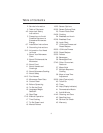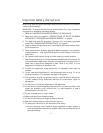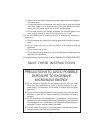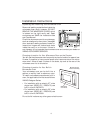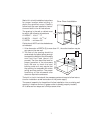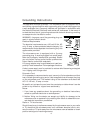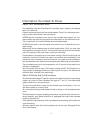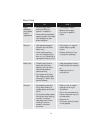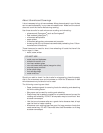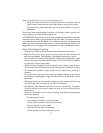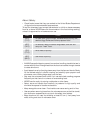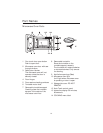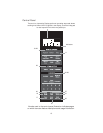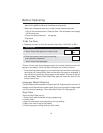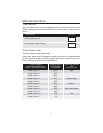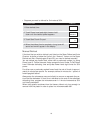
11
About Utensils and Coverings
It is not necessary to buy all new cookware. Many pieces already in your kitchen
can be used successfully in your new microwave oven. Make sure the utensil
does not touch the interior walls during cooking.
Use these utensils for safe microwave cooking and reheating:
• glass ceramic (Pyroceram
®
), such as Corningware
®
.
• heat-resistant glass (Pyrex
®
)
•microwave-safe plastics
• paper plates
•microwave-safe pottery, stoneware and porcelain
•browning dish (Do not exceed recommended preheating time. Follow
manufacturer's directions.)
These items can be used for short time reheating of foods that have little
fat or sugar in them:
• wood, straw, wicker
DO NOT USE
•metal pans and bakeware
• dishes with metallic trim
• non-heat-resistant glass
• non-microwave-safe plastics (margarine tubs)
•recycled paper products
•brown paper bags
• food storage bags
•metal twist-ties
Should you wish to check if a dish is safe for microwaving, place the empty
dish in the microwave oven and microwave on HIGH for 30 seconds. A dish
which becomes very hot should not be used.
The following coverings are ideal:
• Paper towels are good for covering foods for reheating and absorbing
fat while cooking bacon.
•Wax paper can be used for cooking and reheating.
• Plastic wrap that is specially marked for microwave use can be used for
cooking and reheating. DO NOT allow plastic wrap to touch food. Vent
so steam can escape.
• Lids that are microwave-safe are a good choice because heat is kept
near the food to hasten cooking.
•Microwave oven cooking bags are good for large meats or foods that
need tenderizing. DO NOT use metal twist ties. Remember to slit bag
so steam can escape.



